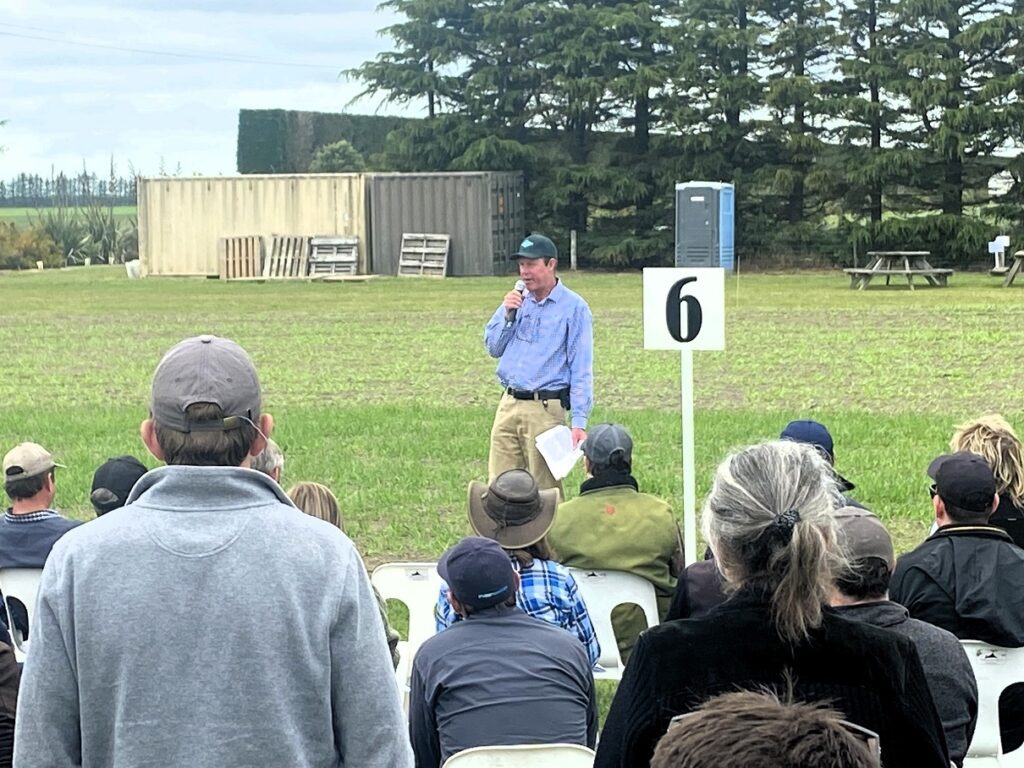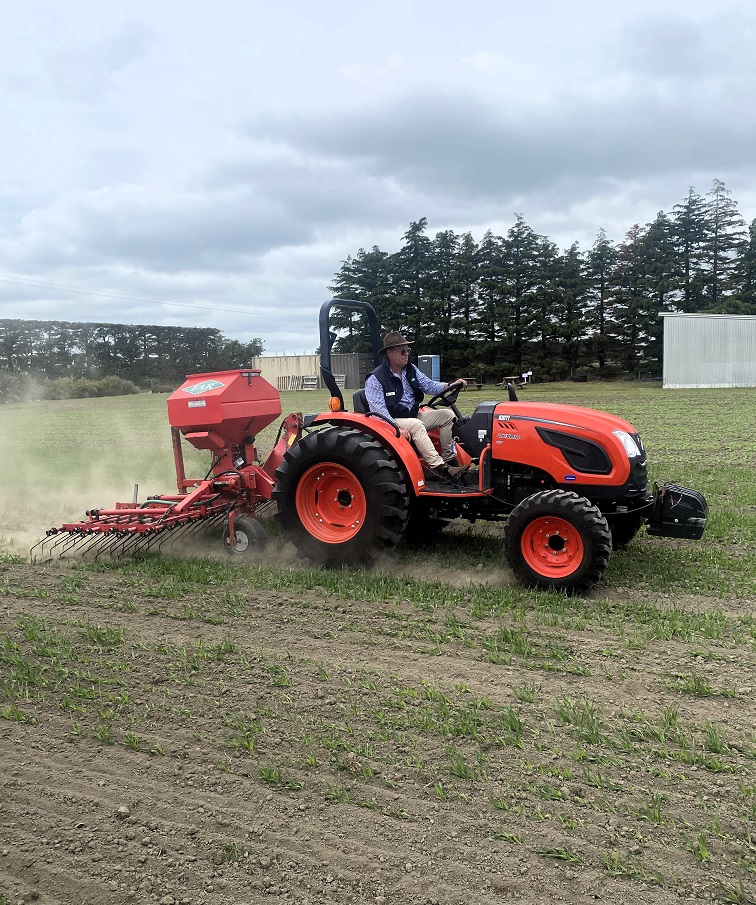The increasing importance of an integrated approach to crop protection was a message coming through clearly at the Foundation for Arable Research’s annual expo CROPS.
Held in late November, the event covered a wide range of topics from management of herbicide resistance with mechanical weeding to the use of drones for applications of nutrients and pesticides. Challenges facing the industry such as developing agrichemical resistance emphasised the need for changes to grower practice.
Among the demonstrations of this integrated approach at the field day was FAR’s A Lighter Touch programme of research, which aims to extend the life of existing chemistry at risk from resistance, while adding new options to the grower’s toolbox.

Dr Charles ‘Merf’ Merfield discusses mechanical weeding at CROPS 2024.
FAR’s ‘lighter touch’ research areas focus on plant genetics, integration of new crop protection technologies and rationalising chemical pesticide programmes.
A Lighter Touch agroecological lead Jeff Smith, who attended the event, says findings from this work is now progressing to a point where the results are showcasing to growers the effectiveness of an integrated approach to crop protection compared to a traditionally chemical reliant programme.
“Arable growers have long recognised the risk of losing key, yield delivering, crop protection materials and the effect this could have on the economic viability of both commodity and proprietary crops.
“Through their dedicated research provider, FAR, they have sought a pathway forward which is now coming to fruition with well researched and proven methodology providing them with the confidence to integrate new approaches into their practice.”
More detail of the topics discussed at CROPS 2024 can be found in the field day booklet available on the FAR website.
